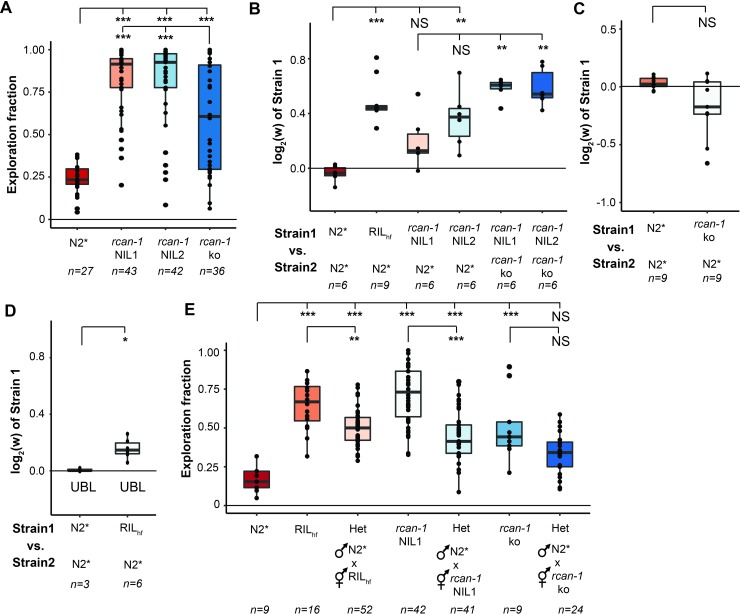Fig 7. The rcan-1 rearrangement allele is not a loss of function allele but its complexity is necessary for fitness advantage and active exploration behavior.
(A) A large deletion of the rcan-1 coding region was created using CRISPR/Cas9 genomic editing of the N2* strain. The rcan-1 knockout modified exploration behavior but did not phenocopy the rcan-1 NIL strains (***: p < 0.001. one-way ANOVA tests followed by Tukey’s honest significant difference test). (B) Competition experiments demonstrated that a strain carrying an rcan-1 deletion allele was less fit than the rcan-1 NIL strain (NS: Not significant; **: p < 0.01; ***: p < 0.001. one-way ANOVA tests followed by Tukey’s honest significant difference test). (C) Competition experiments suggested that a strain carrying an rcan-1 deletion allele does not show fitness advantage when compete against rcan-1 wild-type strain. (NS: Not significant. Unpaired Mann-Whitney-Wilcoxon Test). (D) Plates seeded with uniform bacteria lawn that suppress aggregation behavior of N2* do not fully suppress fitness advantage of rcan-1 rearrangement allele. (*: p < 0.05. Unpaired Mann-Whitney-Wilcoxon Test). (E) F1 heterozygotes N2* x RILhf animals and N2* x rcan-1 NIL1 animals show significantly lower exploration fraction than RILhf and rcan-1 NIL1. (NS: Not significant; **: p < 0.01; ***: p < 0.001. one-way ANOVA tests followed by Tukey’s honest significant difference test).

